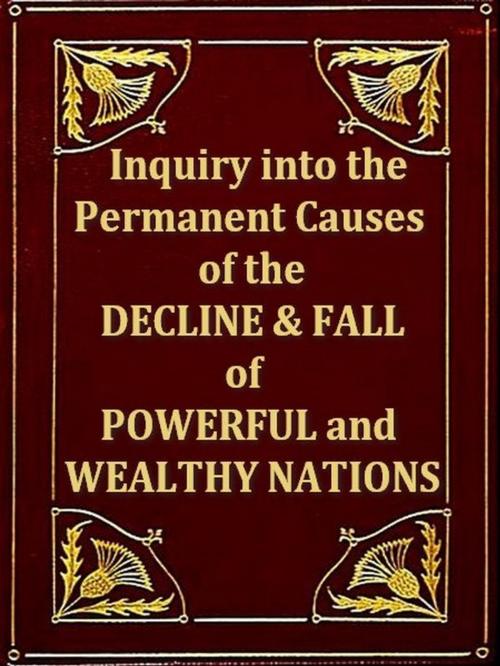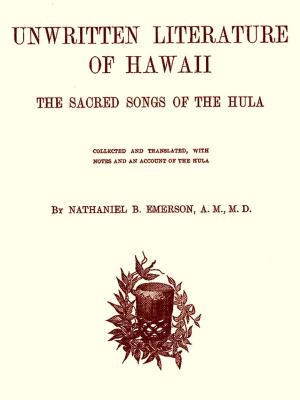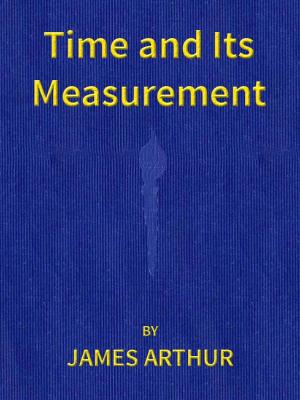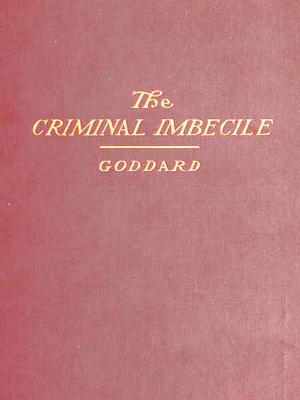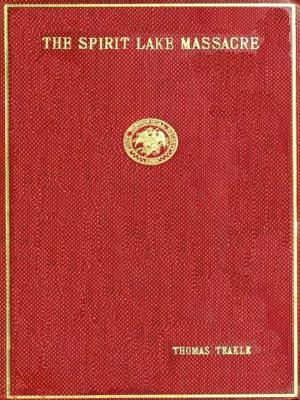An Inquiry into the Permant Causes of the Decline and Fall of Powerful and Wealthy Nations
Nonfiction, History| Author: | William Playfair | ISBN: | 1230000141925 |
| Publisher: | VolumesOfValue | Publication: | June 14, 2013 |
| Imprint: | Language: | English |
| Author: | William Playfair |
| ISBN: | 1230000141925 |
| Publisher: | VolumesOfValue |
| Publication: | June 14, 2013 |
| Imprint: | |
| Language: | English |
CONTENTS
BOOK I.
CHAP. I.
INTRODUCTION and plan of the work. — Explanation of what the author understands by wealthy and powerful nations, and of the general cause of wealth and power
CHAP. II.
Of the general causes that operate, both externally and internally, in bringing down nations that have risen above their level to that assigned to them by their extent, fertility, and population; and of the manner in which wealth destroyed power in ancient nations
CHAP. III.
Of the nations that rose to wealth and power previous to the conquests in Asia and Africa, and the causes which ruined them
CHAP. IV.
Of the Romans. — The causes of their rise under the republic, and of their decline under the emperors. — The great error generally fallen into with respect to the comparison between Rome and Carthage; proofs that it is wrong, and not at all applicable to France and England
CHAP. V.
Of the cities and nations that rose to wealth and power in the middle ages, after the fall of the Western Empire, and previous to the discovery of the passage to the East Indies by the Cape of Good Hope, and of America. — Different effects of wealth on nations in cold and in warm climates, and of the fall of the Eastern Empire
CHAP. VI.
Digression concerning the commerce with India. — This the only one that raised ancient nations to wealth. — Its continual variations. — The envy it excited, and revolutions it produced
CHAP. VII.
Of the causes that brought on the decline of the nations that had flourished in the middle ages, and of Portugal, Spain, Holland, and the Hans Towns
CHAP. VIII.
General view and analysis of the causes that operated in producing the decline of all nations, with a chart, representing the rise, fall, and migrations of wealth, in all different countries, from the year 1500, before the birth of Christ, to the end of the eighteenth century, — a period of 3300 years
BOOK II.
CHAP. I
Of the interior causes of decline, arising from the possession of wealth. — Its general operation on the habits of life, manners, education, and ways of thinking and acting of the inhabitants of a country
CHAP. II.
Of the education of youth in nations increasing in wealth. — The errors generally committed by writers on that subject. — Importance of female education on the manners of a people. — Not noticed by writers on political economy. — Education of the great body of the people the chief object. — In what that consists
CHAP. III.
Of increased taxation, as an interior cause of decline. — Its different effects on industry, according to the degree to which it is carried. — Its effects on the people and on government
CHAP. IV.
Of the interior causes of decline, arising from the encroachments of public and privileged bodies; and of those who have a common interest on those who have no common interest
CHAP. V.
Of the internal causes of decline, arising from the unequal division of property, and its accumulation in the hands of particular persons. — Its effects on the employment of capital
CHAP. VI.
Of the interior causes of decline, which arise from the produce of the soil becoming unequal to the sustenance of a luxurious people. — Of monopoly
CHAP. VII.
Of the increase of the poor, as general affluence becomes greater. — Of children left unprovided for. — Of their division into two classes. — Those that can labour more or less, and those that can do no labour
CHAP. VIII.
Of the tendency of capital and industry to leave a wealthy country, and of the depreciation of money in agricultural and commercial countries
CHAP. IX.
Conclusion of the interior causes. — Their co-operation. — Their general effect on the government and on the people. — The danger arising from them does not appear till the progress in decline is far advanced
CHAP. X.
Of the external causes of decline. — The envy and enmity of other nations. — Their efforts, both in peace and war, to bring wealthy nations down to their level
CHAP. XI.
Why the intercourse between nations is ultimately in favour of the poorer one, though not so at first
CHAP. XII.
Conclusion of exterior causes. — Are seldom of much importance, unless favoured by interior ones. — Rich nations, with care, capable, in most cases, of prolonging their prosperity. — Digression on the importance of public revenue
BOOK III.
CHAP. I.
Result of the foregoing Inquiry applied to Britain. — Its present state, in what its wealth consists
CHAP. II.
Of education, as conducted in England. — Amelioration proposed. — Necessity of government interfering, without touching the liberty of the subject
CHAP. III.
Of the effects of taxation in England
CHAP. IV.
Of the national debt and sinking fund. — Advantages and disadvantages of both. — Errors committed in calculating their effects. — Causes of error. — Mode proposed for preventing future increase
CHAP. V.
Of taxes for the maintenance of the poor. — Their enormous increase. — The cause. — Comparison between those of England and Scotland. — Simple, easy, and humane mode of reducing them
CHAP. VI.
Causes of decline, peculiar to England
CHAP. VII.
Circumstances peculiar to England, and favourable to it
CHAP. VIII.
Conclusion
Application of the present Inquiry to nations in general
CONTENTS
BOOK I.
CHAP. I.
INTRODUCTION and plan of the work. — Explanation of what the author understands by wealthy and powerful nations, and of the general cause of wealth and power
CHAP. II.
Of the general causes that operate, both externally and internally, in bringing down nations that have risen above their level to that assigned to them by their extent, fertility, and population; and of the manner in which wealth destroyed power in ancient nations
CHAP. III.
Of the nations that rose to wealth and power previous to the conquests in Asia and Africa, and the causes which ruined them
CHAP. IV.
Of the Romans. — The causes of their rise under the republic, and of their decline under the emperors. — The great error generally fallen into with respect to the comparison between Rome and Carthage; proofs that it is wrong, and not at all applicable to France and England
CHAP. V.
Of the cities and nations that rose to wealth and power in the middle ages, after the fall of the Western Empire, and previous to the discovery of the passage to the East Indies by the Cape of Good Hope, and of America. — Different effects of wealth on nations in cold and in warm climates, and of the fall of the Eastern Empire
CHAP. VI.
Digression concerning the commerce with India. — This the only one that raised ancient nations to wealth. — Its continual variations. — The envy it excited, and revolutions it produced
CHAP. VII.
Of the causes that brought on the decline of the nations that had flourished in the middle ages, and of Portugal, Spain, Holland, and the Hans Towns
CHAP. VIII.
General view and analysis of the causes that operated in producing the decline of all nations, with a chart, representing the rise, fall, and migrations of wealth, in all different countries, from the year 1500, before the birth of Christ, to the end of the eighteenth century, — a period of 3300 years
BOOK II.
CHAP. I
Of the interior causes of decline, arising from the possession of wealth. — Its general operation on the habits of life, manners, education, and ways of thinking and acting of the inhabitants of a country
CHAP. II.
Of the education of youth in nations increasing in wealth. — The errors generally committed by writers on that subject. — Importance of female education on the manners of a people. — Not noticed by writers on political economy. — Education of the great body of the people the chief object. — In what that consists
CHAP. III.
Of increased taxation, as an interior cause of decline. — Its different effects on industry, according to the degree to which it is carried. — Its effects on the people and on government
CHAP. IV.
Of the interior causes of decline, arising from the encroachments of public and privileged bodies; and of those who have a common interest on those who have no common interest
CHAP. V.
Of the internal causes of decline, arising from the unequal division of property, and its accumulation in the hands of particular persons. — Its effects on the employment of capital
CHAP. VI.
Of the interior causes of decline, which arise from the produce of the soil becoming unequal to the sustenance of a luxurious people. — Of monopoly
CHAP. VII.
Of the increase of the poor, as general affluence becomes greater. — Of children left unprovided for. — Of their division into two classes. — Those that can labour more or less, and those that can do no labour
CHAP. VIII.
Of the tendency of capital and industry to leave a wealthy country, and of the depreciation of money in agricultural and commercial countries
CHAP. IX.
Conclusion of the interior causes. — Their co-operation. — Their general effect on the government and on the people. — The danger arising from them does not appear till the progress in decline is far advanced
CHAP. X.
Of the external causes of decline. — The envy and enmity of other nations. — Their efforts, both in peace and war, to bring wealthy nations down to their level
CHAP. XI.
Why the intercourse between nations is ultimately in favour of the poorer one, though not so at first
CHAP. XII.
Conclusion of exterior causes. — Are seldom of much importance, unless favoured by interior ones. — Rich nations, with care, capable, in most cases, of prolonging their prosperity. — Digression on the importance of public revenue
BOOK III.
CHAP. I.
Result of the foregoing Inquiry applied to Britain. — Its present state, in what its wealth consists
CHAP. II.
Of education, as conducted in England. — Amelioration proposed. — Necessity of government interfering, without touching the liberty of the subject
CHAP. III.
Of the effects of taxation in England
CHAP. IV.
Of the national debt and sinking fund. — Advantages and disadvantages of both. — Errors committed in calculating their effects. — Causes of error. — Mode proposed for preventing future increase
CHAP. V.
Of taxes for the maintenance of the poor. — Their enormous increase. — The cause. — Comparison between those of England and Scotland. — Simple, easy, and humane mode of reducing them
CHAP. VI.
Causes of decline, peculiar to England
CHAP. VII.
Circumstances peculiar to England, and favourable to it
CHAP. VIII.
Conclusion
Application of the present Inquiry to nations in general
